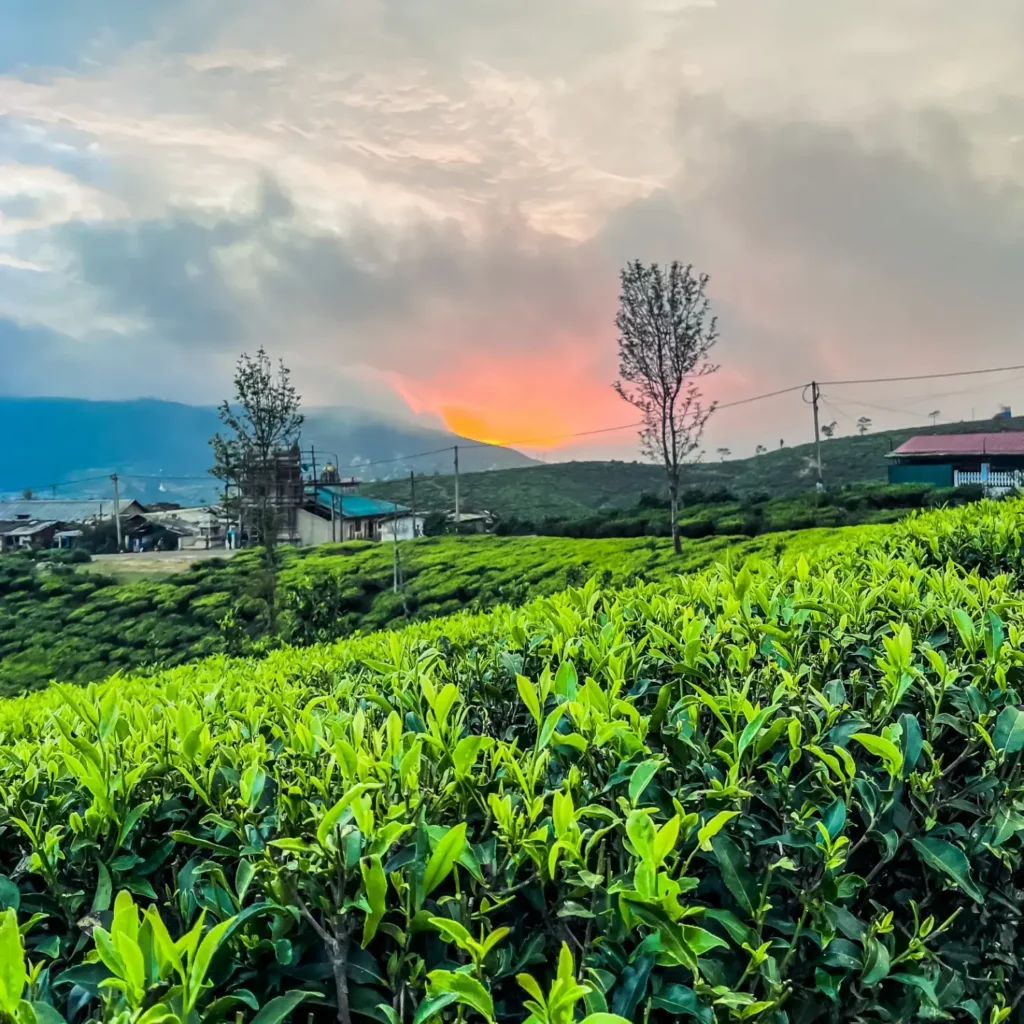The Rich Heritage and Origin of Ceylon Tea
Ceylon tea, renowned for its distinct flavor and exquisite aroma, finds its origins in the lush tea gardens of Sri Lanka, formerly known as Ceylon. The journey of Ceylon tea began in the mid-19th century when British colonizers introduced tea cultivation to the island. Prior to this, the island was primarily known for its coffee plantations. However, a devastating coffee blight in the 1860s prompted a shift towards tea, marking the beginning of Sri Lanka’s transformation into a global tea powerhouse.
Sri Lanka’s unique climatic and geographical conditions play a crucial role in the cultivation of high-quality tea. The island’s varied elevations, ranging from sea level to over 2,000 meters, coupled with its tropical climate, create diverse microclimates ideal for growing different varieties of tea. The higher altitudes are particularly favorable for producing the finest quality black tea, known for its briskness and robust flavor. The rich, fertile soil, abundant rainfall, and consistent temperatures provide the perfect environment for tea plants to thrive.
The traditional methods of tea processing in Sri Lanka have been meticulously preserved and passed down through generations. These methods involve a series of intricate steps including plucking, withering, rolling, fermenting, and drying. Each step is carried out with precision to ensure that the authentic flavor of Ceylon tea is maintained. The expertise of Sri Lankan tea artisans, honed over centuries, guarantees that every cup of tea is a testament to the island’s rich heritage.
Beyond its economic significance, tea holds a special place in Sri Lankan culture. It is a symbol of hospitality and warmth, often served to guests as a gesture of welcome. Tea drinking is deeply ingrained in the social fabric of Sri Lanka, with tea time being a cherished tradition in many households. The cultural significance of tea extends to various ceremonies and rituals, underscoring its integral role in the daily lives of Sri Lankans.
Overall, the heritage and origin of Ceylon tea are deeply intertwined with the history, geography, and culture of Sri Lanka. This rich legacy continues to be celebrated by tea enthusiasts worldwide, who savor the unique flavors and aromas that only pure Ceylon tea can offer.
The Global Appeal and Health Benefits of Pure Ceylon Tea
Pure Ceylon tea, cultivated in the lush tea gardens of Sri Lanka, has garnered international acclaim for its unique flavor profile and quality. The global appeal of Ceylon tea extends from casual tea drinkers to connoisseurs who appreciate its diverse range of varieties. Whether it is black, green, white, or oolong, each type of Ceylon tea offers a distinct taste experience that caters to different palates and preferences.
Black Ceylon tea, perhaps the most well-known variety, is celebrated for its robust, full-bodied flavor and vibrant color. Green Ceylon tea, on the other hand, provides a lighter, more delicate taste, often with grassy or citrus undertones. White Ceylon tea, considered the most refined, is known for its delicate, sweet flavor and subtle aroma. Oolong Ceylon tea bridges the gap between black and green teas, offering a complex flavor that is both rich and floral.
Beyond its delightful taste, Ceylon tea is prized for numerous health benefits. It is rich in antioxidants, which help combat oxidative stress and support overall health. Regular consumption of Ceylon tea can also aid in boosting metabolism, making it a popular choice for those looking to maintain a healthy weight. Additionally, the calming properties of Ceylon tea can promote relaxation and mental clarity, making it an excellent beverage for unwinding after a busy day.
For consumers worldwide, enjoying Ceylon tea to its fullest potential involves proper brewing techniques. It is recommended to use freshly boiled water and steep the tea for the appropriate amount of time, depending on the variety. For black tea, a steeping time of 3-5 minutes is ideal, while green and white teas require shorter durations. Pairing Ceylon tea with complementary foods can further enhance the experience; for instance, black tea pairs well with hearty dishes, while green and white teas are perfect with light snacks and desserts.
In conclusion, the global appeal of Ceylon tea lies not only in its exquisite flavors but also in its numerous health benefits. By understanding the different varieties and optimal brewing methods, consumers can fully appreciate the experience of enjoying pure Ceylon tea from the lush tea gardens of Sri Lanka.

As the sun dips below the horizon, the tea estate is bathed in a golden glow, casting long shadows over the lush green tea bus
